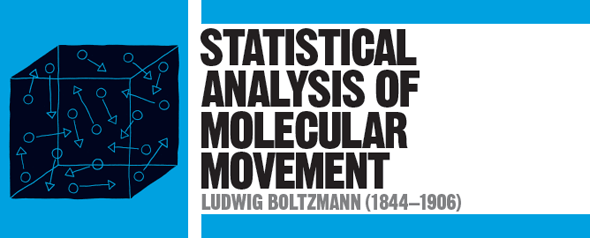
IN CONTEXT
Physics
1738 Daniel Bernoulli suggests that gases are made of moving molecules.
1827 Scottish botanist Robert Brown identifies the movement of pollen in water, which becomes known as Brownian motion.
1845 Scottish physicist John Waterston describes how energy among gas molecules is distributed according to statistical rules.
1857 James Clerk Maxwell calculates the mean speed of molecules and the mean distance between collisions.
1905 Albert Einstein analyses Brownian motion mathematically, showing how it is the result of the impact of molecules.
By the middle of the 19th century, atoms and molecules had become central ideas in chemistry, and most scientists understood that they were the key to the identity and behaviour of elements and compounds. Few thought they had much relevance to physics, but in the 1880s, Austrian physicist Ludwig Boltzmann developed the kinetic theory of gases, putting atoms and molecules right at the heart of physics, too.
In the early 18th century, Swiss physicist Daniel Bernoulli had suggested that gases are made of a multitude of moving molecules. It is their impact that creates pressure and their kinetic energy (the energy of their movement) that creates heat. In the 1840s and 1850s, scientists had begun to realize that the properties of gases reflect the average movement of the countless particles. In 1859, James Clerk Maxwell calculated the speed of molecules and how far they travelled before colliding, showing that temperature is a measure of the average speed of the molecules.
"Available energy is the main object at stake in the struggle for existence and the evolution of the world."
Ludwig Boltzmann
Centrality of statistics
Boltzmann revealed how important the statistics are. He showed that the properties of matter are simply a combination of the basic laws of motion and the statistical rules of probability. Following this principle, he calculated a number now called the Boltzmann constant, providing a formula linking the pressure and volume of a gas to the number and energy of its molecules.
See also: John Dalton • James Joule • James Clerk Maxwell • Albert Einstein